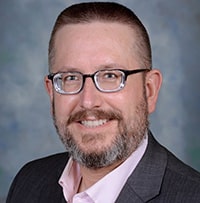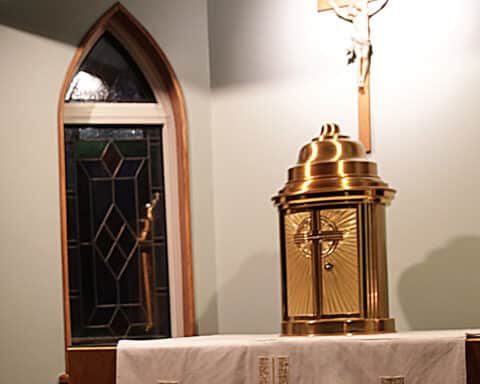
The Church, in her wisdom, puts those words in our mouths during the reading of the Passion in the liturgy of Good Friday. When Pilate, in reply, asks, “Shall I crucify your king?” his words should cut to the depths of our soul. Our voices should be marked by fear and trembling as we respond to him, “We have no king but Caesar.”
We may only utter those words once a year on Good Friday, but in our actions, we say them, again and again, every day of our lives. We proclaim Christ our king with loud hosannas every Sunday and then bow to the lord of this world most of the rest of the week. We don’t think of our actions that way, of course. We’re just living our lives the way our culture has taught us to live them.
“Whoever does not gather with me scatters” (Mt 12:30), Christ told the Pharisees, who accused him of driving out demons by the power of Beelzebul. There is no neutrality in this life. The actions we take, the words we choose: All have moral weight. They either gather us and those around us — our family, our coworkers, our neighbors — closer to Christ, or they scatter. Each action, each word proclaims that Christ is king and glorifies the name of the Lord, or it drives the nail deeper and reveals us to be a loyal subject of Caesar.
None of us is just one type of person or the other — laying down palms and rejoicing at the One who comes in the name of the Lord, or, like Judas, denying Christ. We are both, potentially and actually. These two poles of human existence have been present in the soul of every person who has ever declared himself a Christian.
Judas wasn’t the only disciple who denied Christ in the wake of the Last Supper. Peter did as well. The greatest of saints have always been the first to proclaim themselves the greatest of sinners. The more we unite ourselves to Christ, the more we recognize our faults and our failings. We come to understand more fully what is truly ours, and what is the work of Christ in us.
My pride, my sloth, my envy, my greed, my anger, my fear, my perplexity, my weakness, my lies, my spite, my eccentricities — these are truly mine, and mine alone. But my insight, my fortitude, my compassion, my love, my forbearance, my generosity, my piety, my sacrifice — these are not mine, but the work of Christ in me.
And they are the work of Christ in others. When we love the Lord with all our heart, with all our mind, with all our soul, and with all our strength, we can truly love our neighbor as ourself, because what we recognize as Christ in us we can now see as Christ in him. Just as we do not love that which is truly ours but only that which is the work of him in us, we can look past the faults and failings of others and love them for who they are meant to be, not for what they, like we, too often are.
From the gates of Jerusalem to the foot of the cross: The entire range of human existence is found in the events of Holy Week. And it is found, too, in the depths of our soul and in the actions that rise from those depths and the words that spring forth from our lips, every day of our lives.
Scott P. Richert is publisher for OSV.





